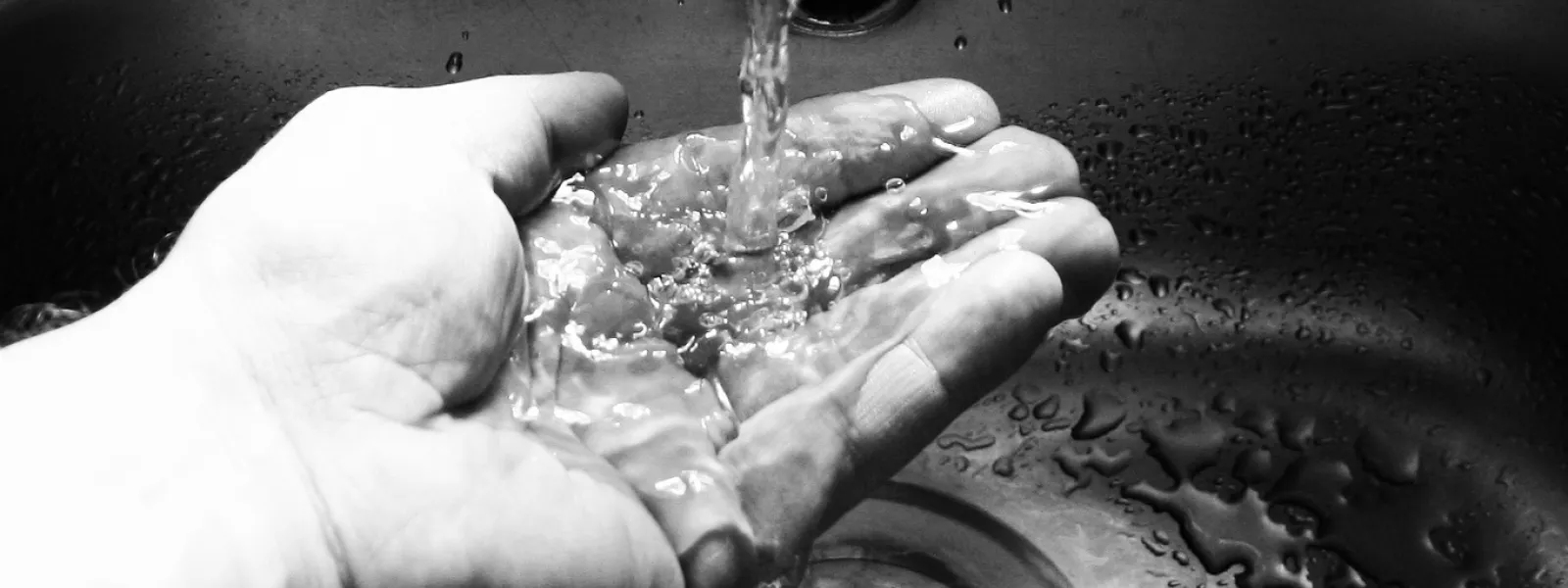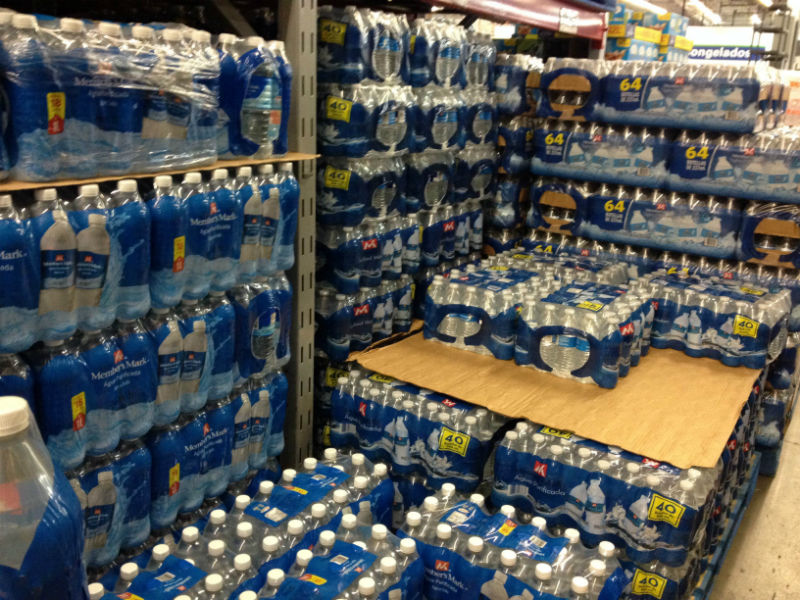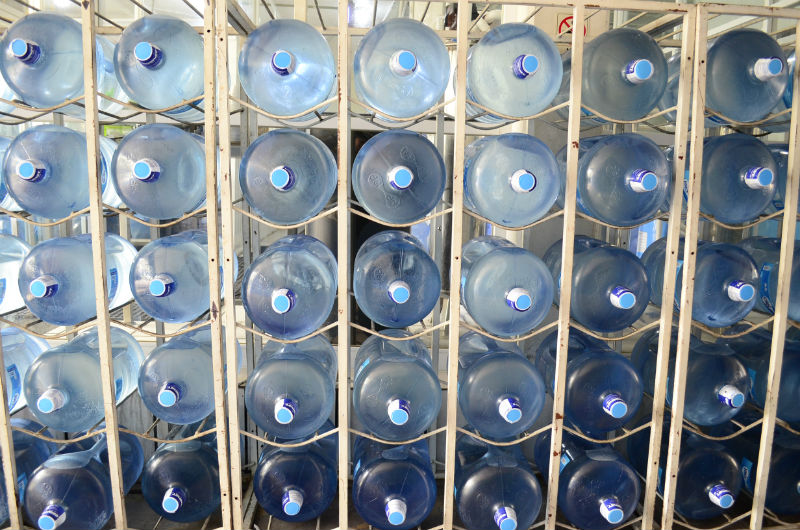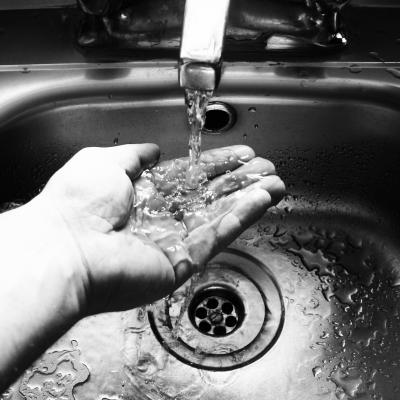
Water in Mexico: a human right, bottled
Mexico consumes 12 percent of the global volume of bottled water, highlighting the failures of the country’s water supply system and the violation of a basic human right.
Nobody should be denied a glass of water. Serving your guests water is polite; it shows you have good manners and empathy for others. It is also, though not quite as obvious, an issue of human rights.
In Mexico’s capital, until only recently, restaurants could deny a glass of water to their customers and require them to drink only bottled water. On one occasion, the owner of a gourmet pizzeria reacted furiously when she saw my boyfriend take out his own water bottle to take a pill. She told him it was prohibited to bring outside food and drink into her restaurant. Then, when we asked for a glass of water, she responded angrily: “We don’t give water away here, we sell it in bottles.”
A circular business
What you find being sold in supermarkets is not the water, but the bottle. In Mexico, the cost of the extraction and supply of water is relatively low, since almost the entire service is subsidized. According to the highest available rate, a glass of water costs seven cents (.007 Mexican pesos). For a bottle with the same quantity of water, the pizzeria charged $1.50 (28 pesos), seven times the supermarket price.

The incident in the pizzeria occurred after the Legislative Assembly of Mexico City required food establishments to provide free glasses of water to customers who ask for it.
But even after the legislative provision, I have often had to clarify that I want a glass of water, not a bottle. The waiters often warn me, “It’s filtered water,” reminding me of its unreliability. The dynamic behind this type of business has changed: they now buy large jugs of bottled water or spend money on filters, because in Mexico it’s well known that you never drink water directly from the tap.
It’s an unspoken secret, almost popular belief, that tap water is dirty water. It’s common that even those of us who don’t buy bottled water have a filter in our homes. This belief emerged from the 1985 earthquake, when various pipes broke and drinking water mixed with sewage. Later, during a cholera epidemic in the 1990’s, the government promoted chlorinating or boiling the tap water. Yet no authority was responsible for the quality of the pipes through which the drinking water ran; water which, by definition, should be fit for human consumption. In contrast, Chile promotes three reliable water sources: chlorinated, boiled or taken from the tap.
In Mexico, the health threat coincided with the arrival of bottled water. What the companies promoted in those early years was confidence and security in the quality of their water. So, little by little, we went from boiling and chlorinating our water, to buying it in 20-liter jugs, to buying small plastic bottles that hold less than 250 ml of water.

According to the International Bottled Water Association (IBWA), in 2014 Mexicans consumed 253 liters of bottled water per person. This compares to 94.3 liters per person in Europe (where public drinking fountains are commonplace) and 37 liters per person globally. Mexico consumes 12 percent of the world’s total volume of bottled water.
The World Bank cites 80 percent of the Mexican population as distrustful of the water supply system. Bottled water companies, then, have nothing but room to grow, especially considering the majority of the population doesn’t yet consume the recommended two liters of water per day. And a large quantity of bottled water is used on daily tasks such as cooking and washing dishes, even on bathing newborn babies.
Can you or can’t you drink tap water? The answer is: It depends.
The responsibility for water supply in Mexico is so fractioned that it’s impossible to get a convincing response. In the capital city, water quality is disclosed each year and in only two neighborhoods does it not meet standards for human consumption. Unfortunately, those with the worst water quality also have the lowest standard of living.
Information on the subject doesn’t arrive to our homes, it’s difficult to access and – in some cases – the information is non-existent, hidden or disguised. No government authority is responsible for water quality: not the National Water Commission, not state or city governments.
Violating a human right

Without convincing responses about the reliability of the water supply system, Mexicans are opting to buy bottled water. By doing so, we’re demonstrating that something is wrong with the country’s water system, and the human right to water is not guaranteed. According to the UN, drinking water must be safe, clean accessible and affordable for all.
The human right to water was included in the Mexican Constitution four years ago, but its implementation, and the party responsible for guaranteeing it, remains under discussion. While the debate continues, millions of Mexicans are, understandably, buying bottled water to protect their health. The lack of information about or accountability for the water supply system makes the guarantee of this human right nothing more than a dream.
The UN established that people shouldn’t spend more than three percent of their income on water services. In Mexico, only those with incomes greater than $1,200 a month (21,000 pesos) spend three percent or less of their income on bottled water. The other 80 percent of households in the country spend as much as eight percent, a staggering figure, especially considering it doesn’t include what they pay for water used for other domestic activities.
People are buying bottled water because they don’t trust the country’s water supply system. By denying a glass of water to its population, the Mexican government is denying a fundamental human right.
Laura Yaniz Estrada

Laura Yaniz Estrada was part of AIDA's communications team. She holds a master's degree in Journalism and Public Policy from the Centro de Investigación y Docencias Económicas (CIDE). She holds a degree in Media and Journalism from the Instituto Tecnológico y de Estudios Superiores de Monterrey (ITESM) and a diploma in National Security from the Instituto Tecnológico Autónomo de México (ITAM). She is interested in new narratives and environmental security.
